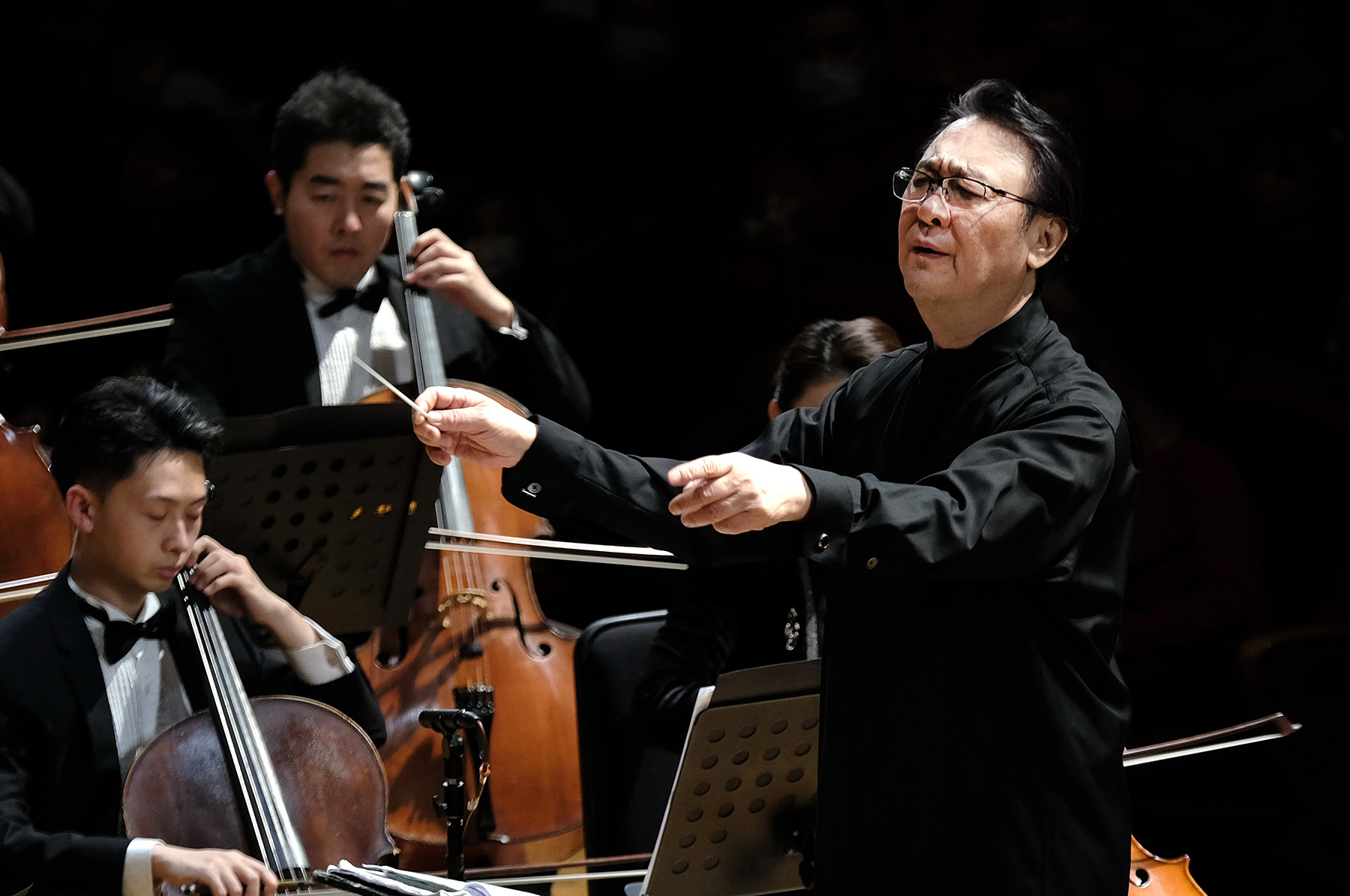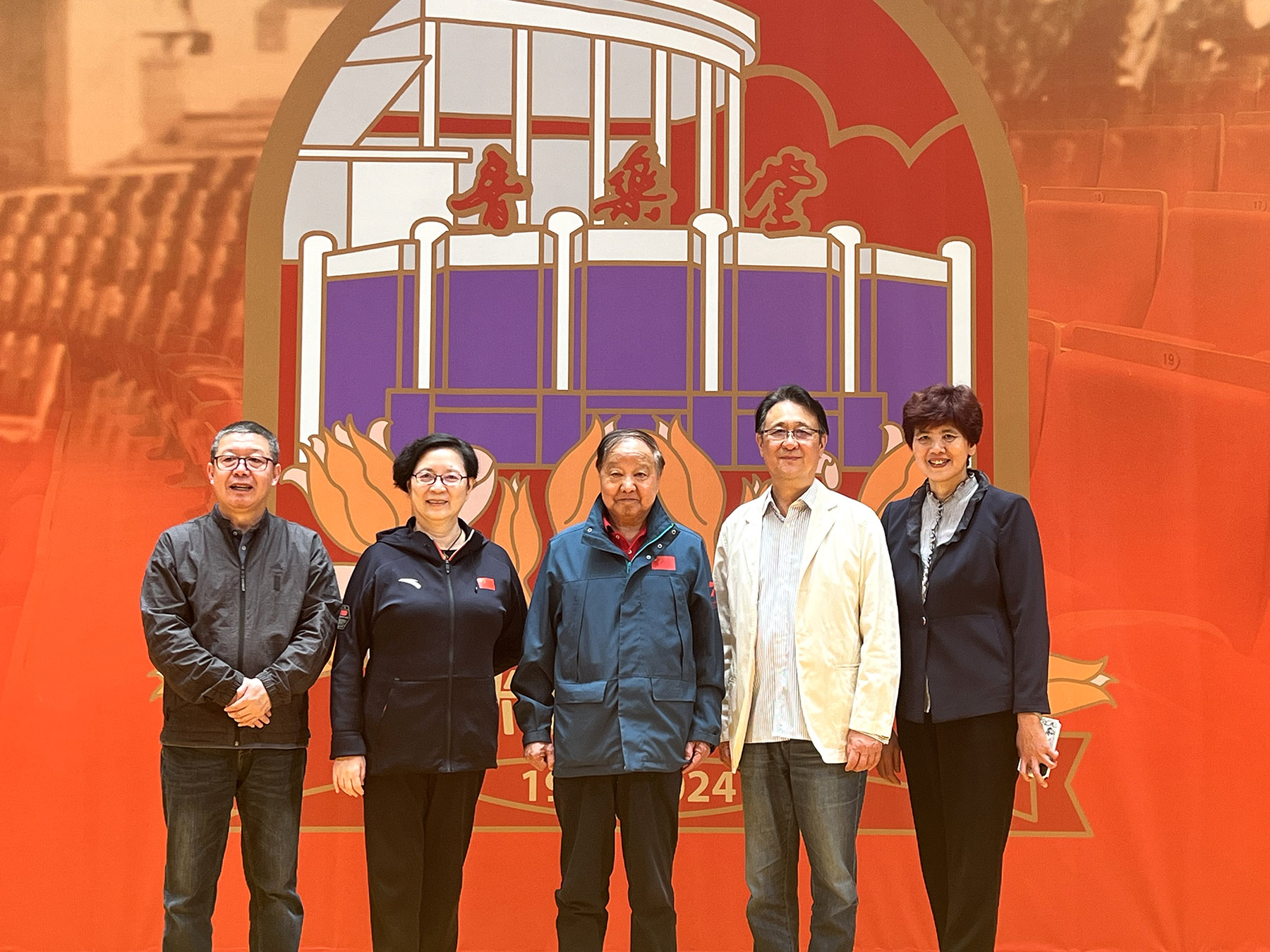
The Forbidden City Concert Hall has announced a series of programs to mark the 25th anniversary of the venue's reopening. From Friday to May 19, it will host performances of classical music, choral singing, chamber music and traditional Chinese music.
Conductor Zheng Jian, the Beijing Musicians Association Choir and the China Broadcast-Film Symphony Orchestra will present the opening concert on Friday, playing such works as Ode to the Red Flag and Swan Lake.
On April 27, Fang Jinlong will play the pipa (Chinese lute), while jamming with French jazz musicians, including pianist, organist and composer Benoit Sourisse; drummer and composer Andre Charlier; and accordion player Christophe Lampidecchia.
READ MORE: Tuning in to Beijing's charms
Chinese art songs will be performed by soprano Shi Yue and baritone Yuan Chenye, along with pianists Xu Hong and Chen Xi, on April 28. During the May Day holiday, the Beijing Symphony Orchestra will perform under the baton of conductor Tan Lihua on Wednesday.
Other highlights include a concert for children with works adapted from songs featured in classic Chinese cartoons and a shadow-puppet show by artists from Tangshan, Hebei province. The award-winning Amber Quartet, and pianist Sheng Yuan will team up for a concert to close the festival on May 19.
Located in Zhongshan Park near Tian'anmen Square, the Forbidden City Concert Hall was first built in 1942 as one of Beijing's first modern theaters. From 1942 to 1996, it undertook three major renovations and has been transformed from an open-air theater to an indoor venue, which has since staged live performances and national-level meetings.
In 1999, led by Zhang Heping, then the director of Beijing Municipal Bureau of Culture (now the Beijing Municipal Bureau of Culture and Tourism), the Forbidden City Concert Hall reopened following another renovation.
A weeklong festival was held in April 1999 to mark the reopening, and became an important cultural event in the city that year.

The year 1999 marked the 50th anniversary of the founding of the People's Republic of China. At that time, Beijing only had one professional concert hall to stage classical music — Beijing Concert Hall, recalls Zhang, 78.
"With the reopening of the Forbidden City Concert Hall, people had another place to go to enjoy music. Since it's located inside the beautiful Zhongshan Park, coming to the Forbidden City Concert Hall has become a joyful trip not only to enjoy art but also have a great time in the park," he says.
"Since 1999, we decided to run the weeklong festival every year, making it an annual event to commemorate the reopening."
Conductor Tan, the former head of Beijing Symphony Orchestra, says that when the venue was renovated in 1999, it was used as a home for the Beijing Symphony Orchestra, where he and the orchestra did rehearsals and gave many performances.
"It's like a home to me," Tan says.
"The venue has also witnessed the growing fan base of classical music in the capital, especially young people."
Tan is credited with co-launching the Gateway to Arts summer festival, an annual event that started in 1995 and has become one of Beijing's biggest arts festivals for children during the summer vacation.
Now, every summer, the two-month festival offers children not only live performances and public lectures but also summer camps. These feature diverse classes, including classical music, traditional Chinese operas and Chinese instrumentation.
ALSO READ: When many young hearts play as one
"I am very proud that we have run the place for 25 years and launched many festivals that have become our popular brands," says Xu Jian, general manager of the Forbidden City Concert Hall.
The former volleyball player has been in charge of the venue since 2002. She can still remember the first show she ever watched there. It was a performance by a children's choir led by the late music educator Yang Hongnian (1934-2020) on May 31, 1995.
"The kids choir stood in the hallway of the venue, singing songs to welcome the audience. It was a very touching moment," Xu recalls.
"During the past 25 years, the venue survived many difficult times, such as the pandemic, and we have built a deep connection with our audiences."


